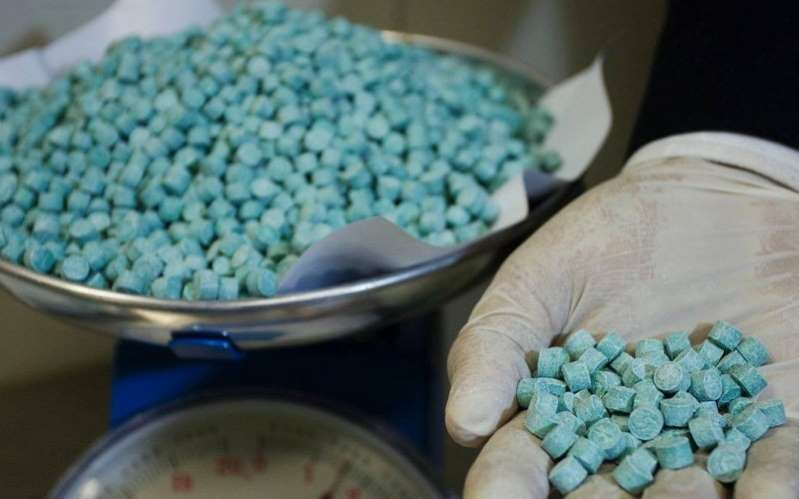What happens when it’s no longer a crime to be a drug-user

PETALING JAYA: Experts have weighed in on the consequences of a possible new national drug policy, after it was reported that the health ministry was considering a drastic move to decriminalise drug consumption.
Former inspector-general of police Musa Hassan opposed the proposal, arguing that drugs bring problems to the community and encourages crime.
“To me, if you decriminalise drugs, that means everybody can abuse drugs in this country.
“You can decriminalise the consumption of drugs, but you will be increasing the occurence of other crimes.”
He also noted a negative ripple effect on the resources and the capacity of the Royal Malaysia Police and the National Anti-Drug Agency in carrying out enforcement work.
He also questioned what type of drugs will be decriminalised, adding that there was a need to classify the different types of drugs properly.
Criminal lawyer Rosal Azimin Adnan agreed that there will be a negative effect on the enforcement authorities, adding that the police may be burdened with an extra task of checking the legitimacy of a drug user’s supplier.
“For example, if one person gets caught, and his urine tested positive for drugs, they will say they took it from a pharmacy. Then the police will have to go check the pharmacy.”
Similarly, he also said that there was a need to classify which drugs would be decriminalised for consumption, and urged that synthetic drugs remain illegal. “Maybe for herbs such as hemp, cannabis, or ketum, those can be decriminalised.”
He cautioned, however, that drug use among underage youths may become more rampant with the new policy. “Adults who were not dependent may also end up becoming dependent.”
Rosal added that decriminalisation will also result in a new need for licensed distributors or suppliers within the communities.
However, he acknowleged that there may be some positive impact of a new policy, especially for severe drug addicts or terminally ill patients.
“Some drug addicts, they are forced to take drugs and if not, they go through withdrawal. Sometimes we have to give, but in small amounts.”
Some drugs such as hemp of CBD oil may also be useful to alleviate pain among cancer patients, for example.
On a similar note, Lee Lam Thye senior vice-chairman of the Malaysian Crime Prevention Foundation said that while he was in favour of decriminalisation, it should only be allowed for people forced to depend on drugs for certain treatments, adding that drug abuse should still remain an offence.
“The thing is, to them, it’s a health problem, therefore they have to depend on certain drugs. They should be regarded as the patient. They must not be regarded as criminals.”
He added that the government must go on a massive campaign to tell the public that decriminalisation does not mean encouragement of drug abuse.
“The word ‘decriminalise’ may lead to a lot of misconception and misunderstanding,” he feared.
Martin Choo of the Asia Pacific Council of Aids Service Organizations lauded the proposal, but said there was a need for “differentiation based on the social and physiological effects” of the different classes of drugs.
He said, for example, the physiological effects and societal impact of marijuana were different to that of methamphetamine or heroin. He added that some drugs have been shown to have neglible impact on society at large.
“Once the drug policy accepts that there is this nuance, then allow only certain types of drug use to be addressed by the law,” he suggested.
He added that decriminalising consumption would shift the focus away from the consumers, to the drug traffickers and suppliers.
Choo pointed out the success of Portugal’s drug pollicy where the offence was changed from a criminal one to an administrative one if a person was found with no more than a 10-day supply of the substance.
Drug addicts were pushed towards substitution therapy, rehabilitation or community service rather than fines or waivers.
Portugal’s drug policy resulted in lower rates of drug-related deaths and higher numbers of people seeking rehabilitation, and fewer prisoners.
Persatuan Pengasih president Ramli Abd Samad agreed that some parts of the Portugal drug policy should be emulated.
“Portugal does not legalise drugs, they decriminalise the use of drugs, but under supervision,” he said.
He added that this would be good for the youth, as they would not have to bear the long-term consequences of being labelled as criminals and such problems as getting into universities or seeking employment.
“Experimenters, first-time users or young drug addicts can be asked to do social work under the new policy,” he said.
He said his centre treats children as young as 15 years old who would voluntarily come forward for rehabilitation, adding that many had successfully reintegrated into society and ceased drug use.
 Pathways Drug Rehabilitation Luxury Addiction Treatment & Detox Center
Pathways Drug Rehabilitation Luxury Addiction Treatment & Detox Center



